
Tactile Paving Slabs On The Sidewalk Stock Photo Download Image Now Architecture, Assistance
Overview The Marshalls Blister Paving Slab is used to identify the location of a drop kerb and an appropriate place to cross. Developed with the newest technology, these concrete pavers have blistered surface that can be felt underfoot by blind and the different colours available can be identified by visually impaired.
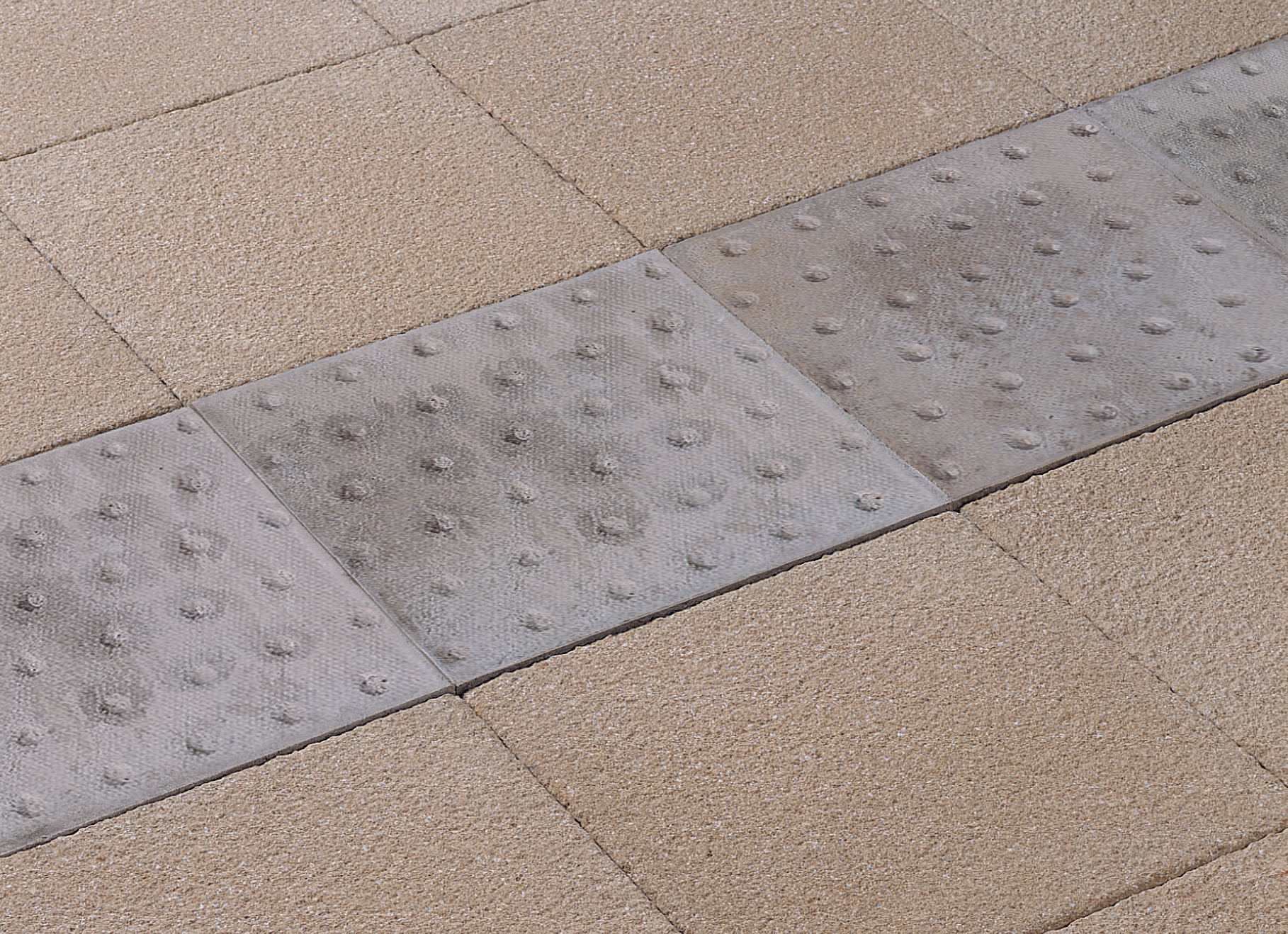
Tactile platform edge paving Marshalls
Surface-mounted tactile paving slabs incorporate raised profiles to warn people that they are approaching a change in elevation such as railway platforms, pedestrian crossings, staircase ascent and descent areas and many other applications. System benefits: No surface excavation required Rapid installation Adheres to most construction surfaces
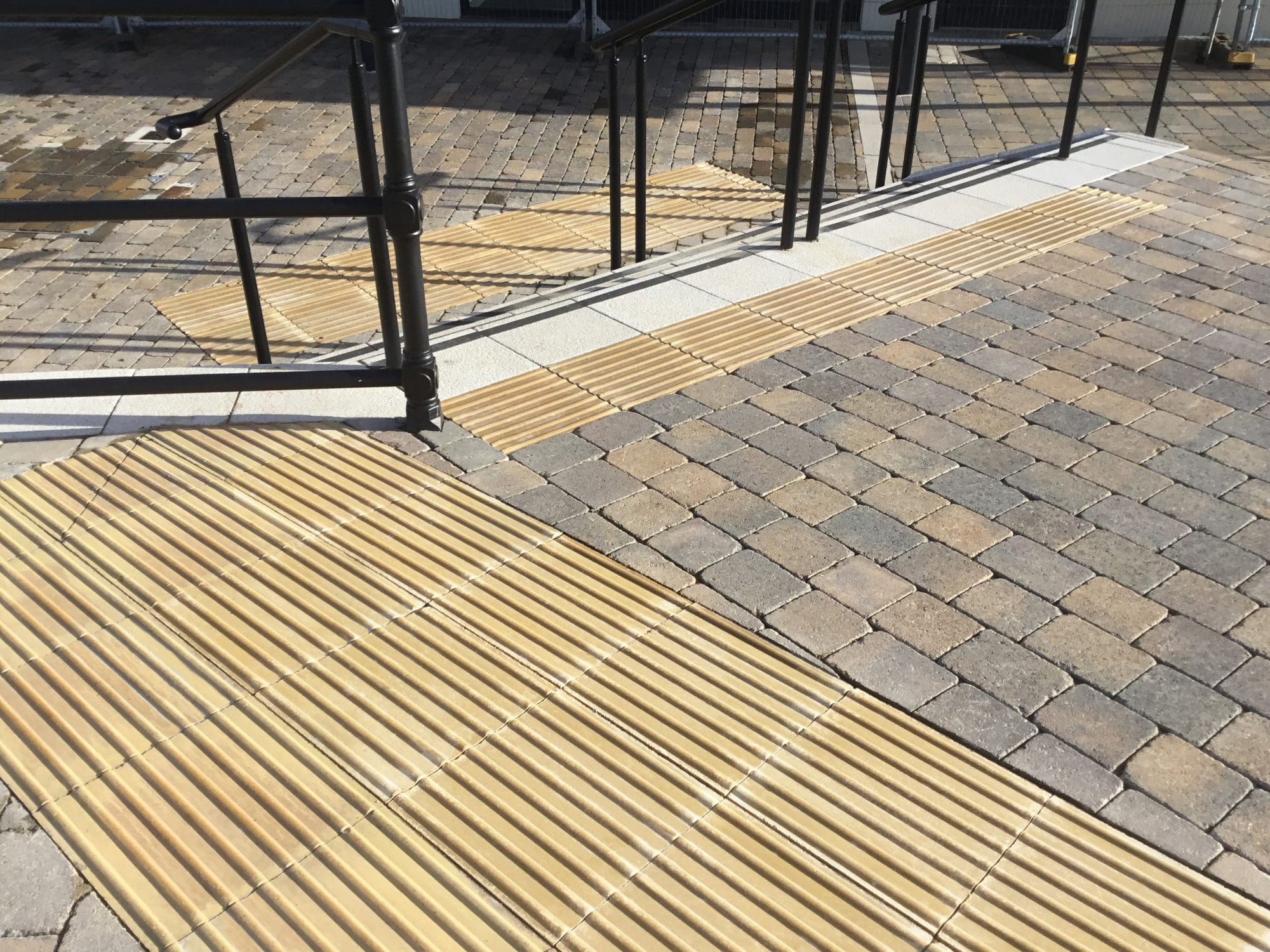
Range of Tactile Paving Slabs for Pedestrian Crossing Zones
What is tactile paving? Tactile paving consists of six different types of standardised paving designs with distinct, raised surface patterns. Visually impaired pedestrians can detect the tactile paving slabs underfoot or by using a cane and interpret the meaning of these patterns.
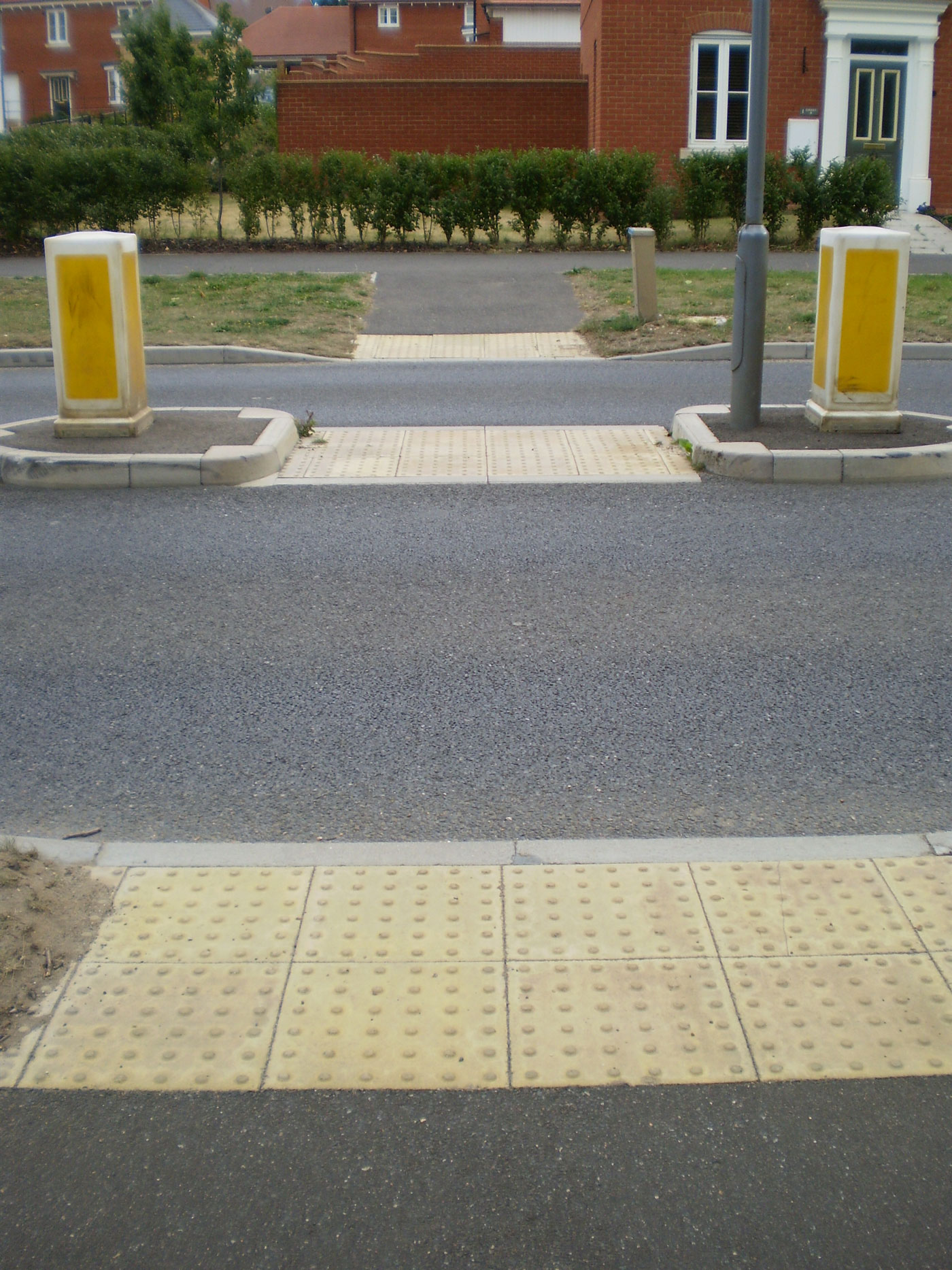
Surface Mounted Tactile Paving Adhesive Tactile Pavers
Our surface mounted tactile paving slabs incorporate raised profiles to warn people that they are approaching a change in elevation such as railway platforms, pedestrian crossings, staircase ascent and descent areas and many other applications. System benefits: No surface excavation required Rapid installation Adheres to most construction surfaces
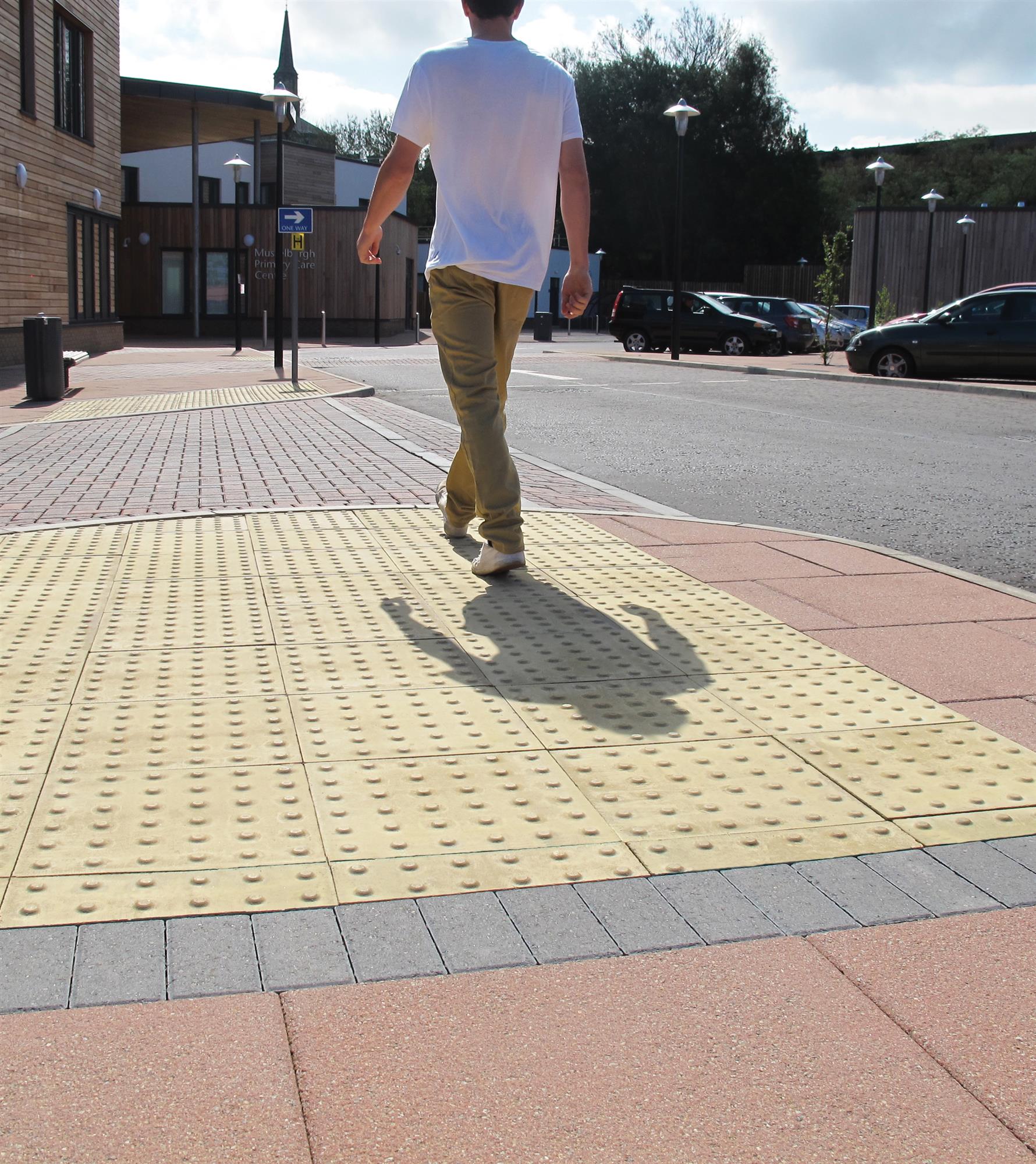
Range of Tactile Paving Slabs for Pedestrian Crossing Zones
Tactile paving slabs, also known as braille blocks, can be felt underfoot or with a probing cane, informing people with visual impairments about the road layout. In contrast, metal spiked studs are an example of defensive architecture. Inserted into ledges or the ground, they deter people from accessing or settling in certain spaces..
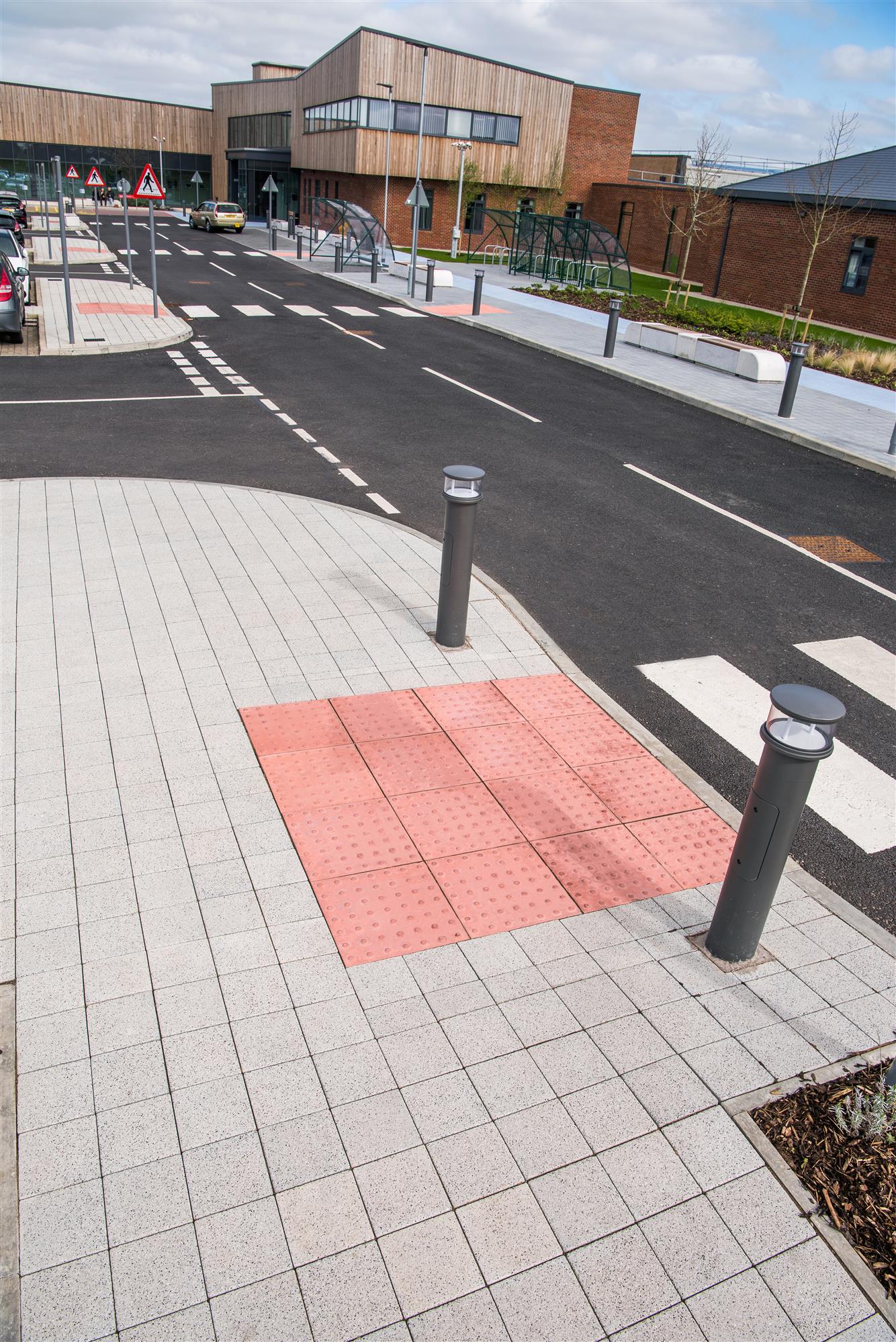
Range of Tactile Paving Slabs for Pedestrian Crossing Zones
The Marshalls Corduroy Tactile Warning Slab 400 x 400 x 50mm (L x W x D) is made of rigid concrete. It is part of an extensive range of paving products used to identify the location and an appropriate place for a crossing. The slab is installed at 90 degrees and 400mm from any potential hazards.

Tactile Paving Slabs at a Pedestrian Crossing for Visually Impaired People. Safety of People
Tactile paving to aid visually impaired and blind pedestrians. Raised blister surface to be felt under-foot Pattern of half-rod shaped bars provides warning of a hazard Superb hard-wearing surface Delivers an extra safety measure at crossing points,drop kerb areas and flights of stairs Swatches Product Specification Downloads NBS Gallery
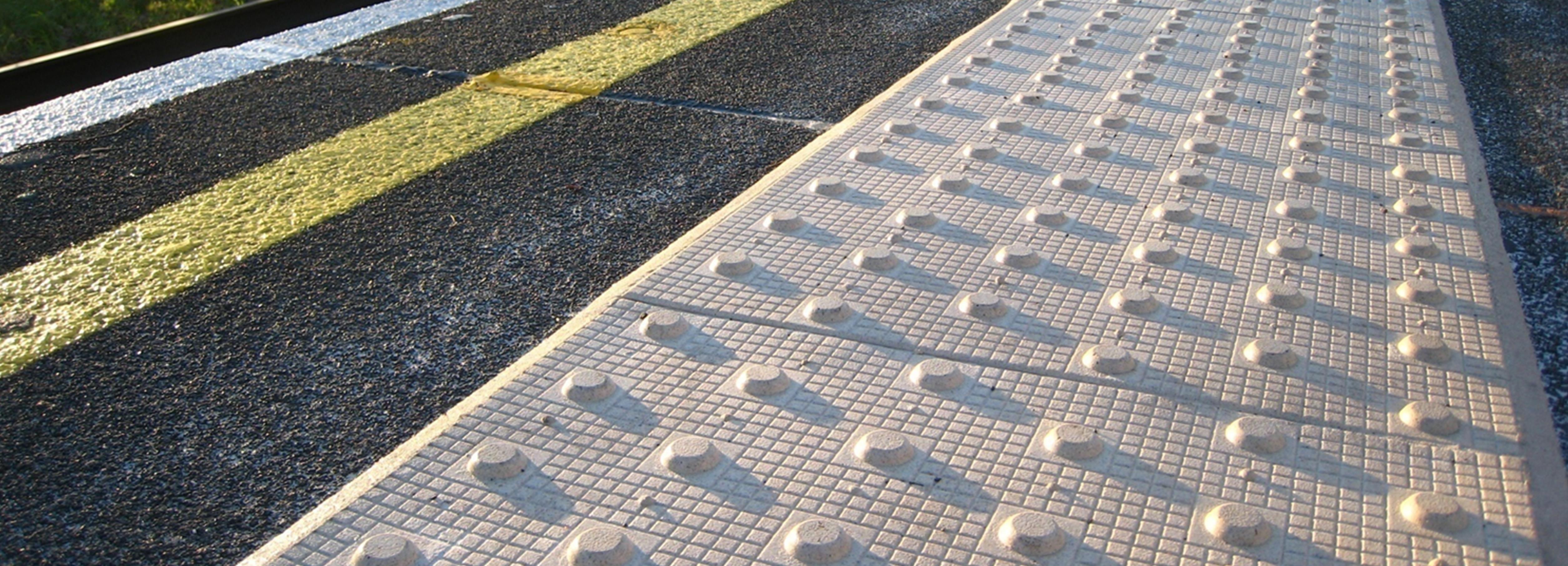
Tactile Paving slabs for the visually impaired Visul
Tactile' is the term given to paving units that bear a distinctive, raised surface profile to be detected by both sighted and visually impaired pedestrians. The most common example to be seen are the Tactile pavings used at pedestrian crossings. This page provides an overview of the various types in use. Table of Contents Introduction Types
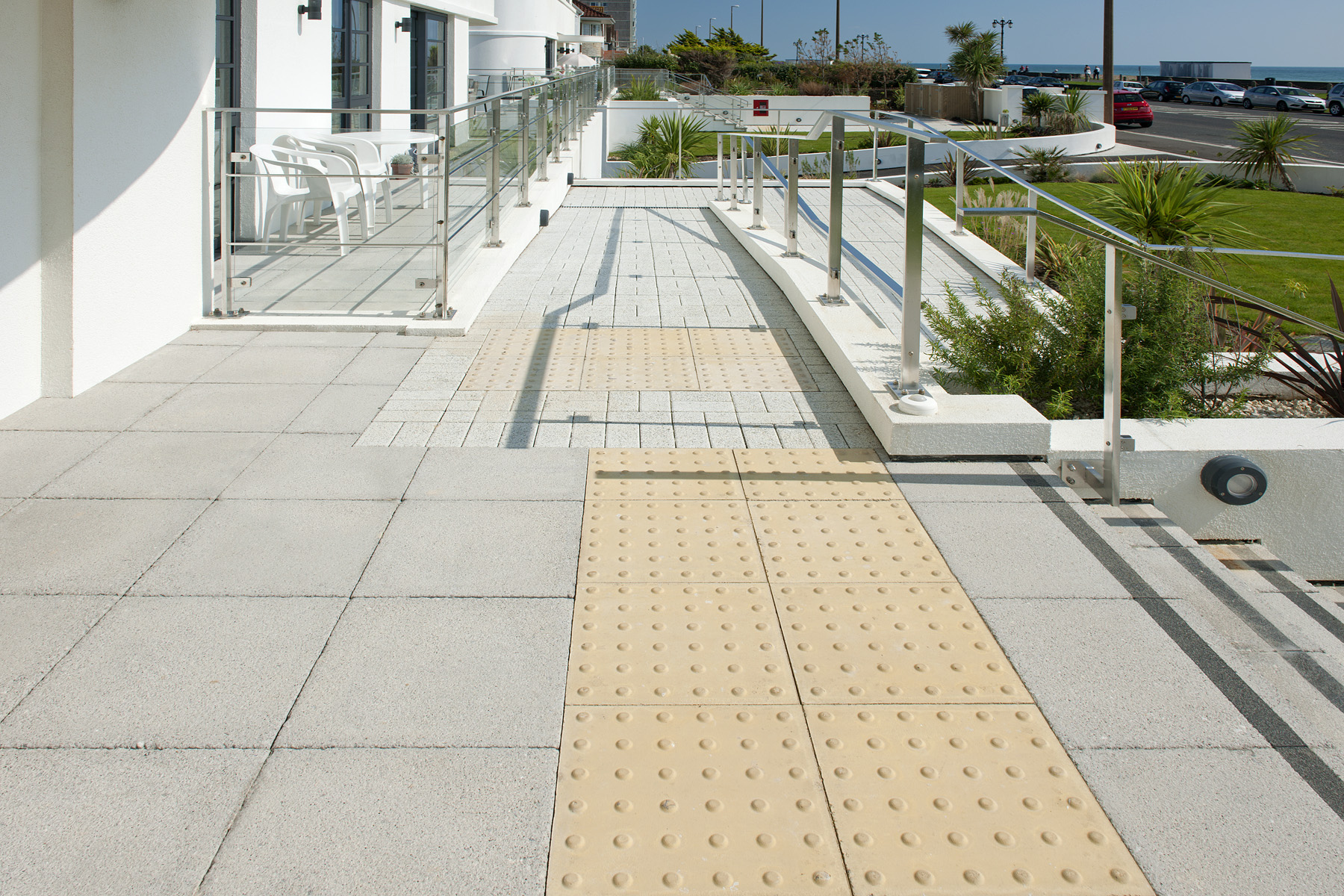
Tactile Paving Blister Paving Slabs Commercial Paving Landscaping
Tactile paving (also called tenji blocks, truncated domes, detectable warnings, tactile tiles, tactile ground surface indicators, tactile walking surface indicators, or detectable warning surfaces) is a system of textured ground surface indicators found at roadsides (such as at curb cuts ), by and on stairs, and on railway station platforms, to.
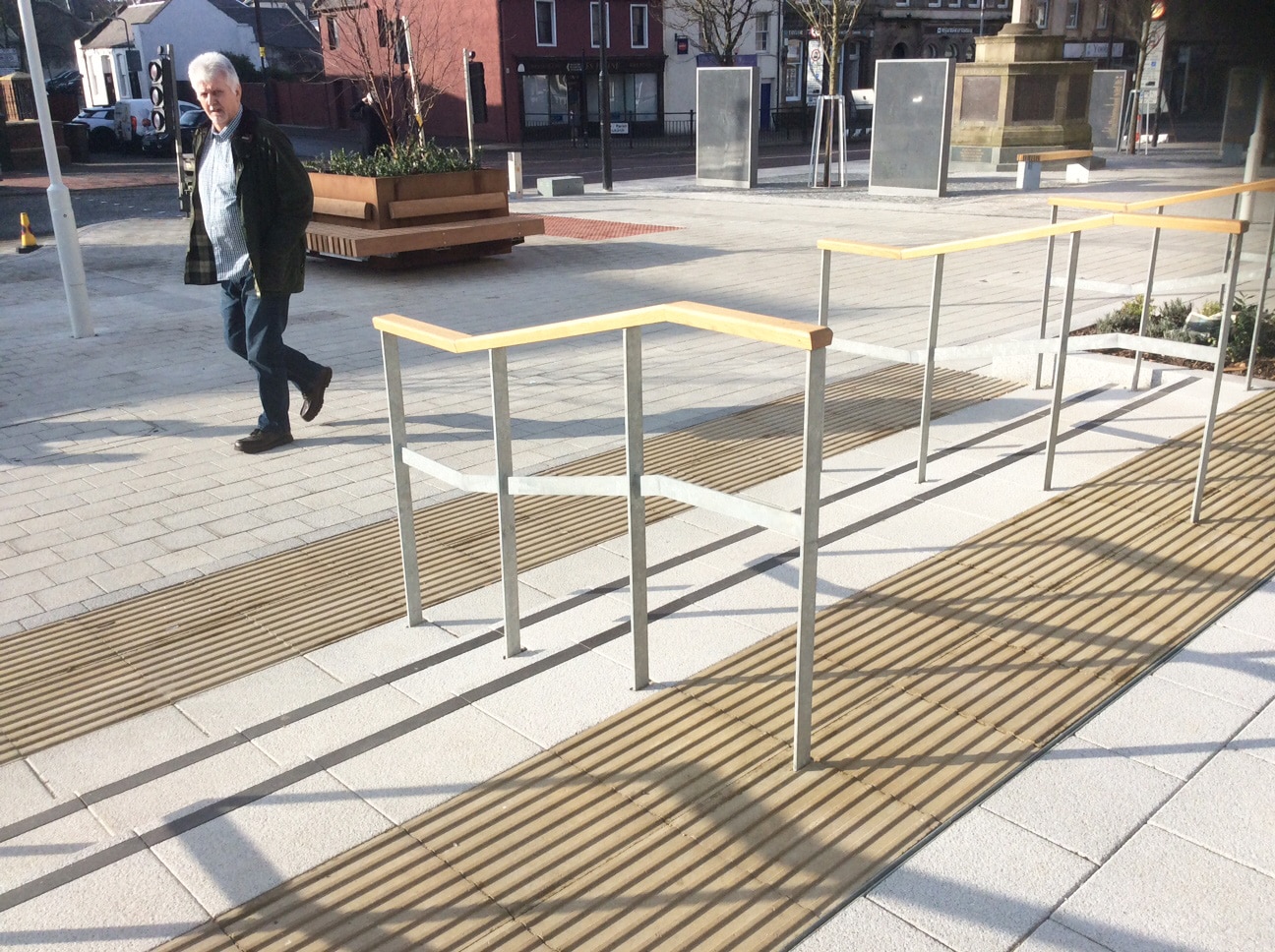
Range of Tactile Paving Slabs for Pedestrian Crossing Zones
Tactile Paving. Pedestrian safety should always be at the forefront of any public landscape project. Tactile Paving has raised surfaces in different patterns and textures, and plays an essential role in public spaces and streetscapes. Used on many footpaths‚ stairs‚ crossings and train station platforms to assist blind and visually impaired.
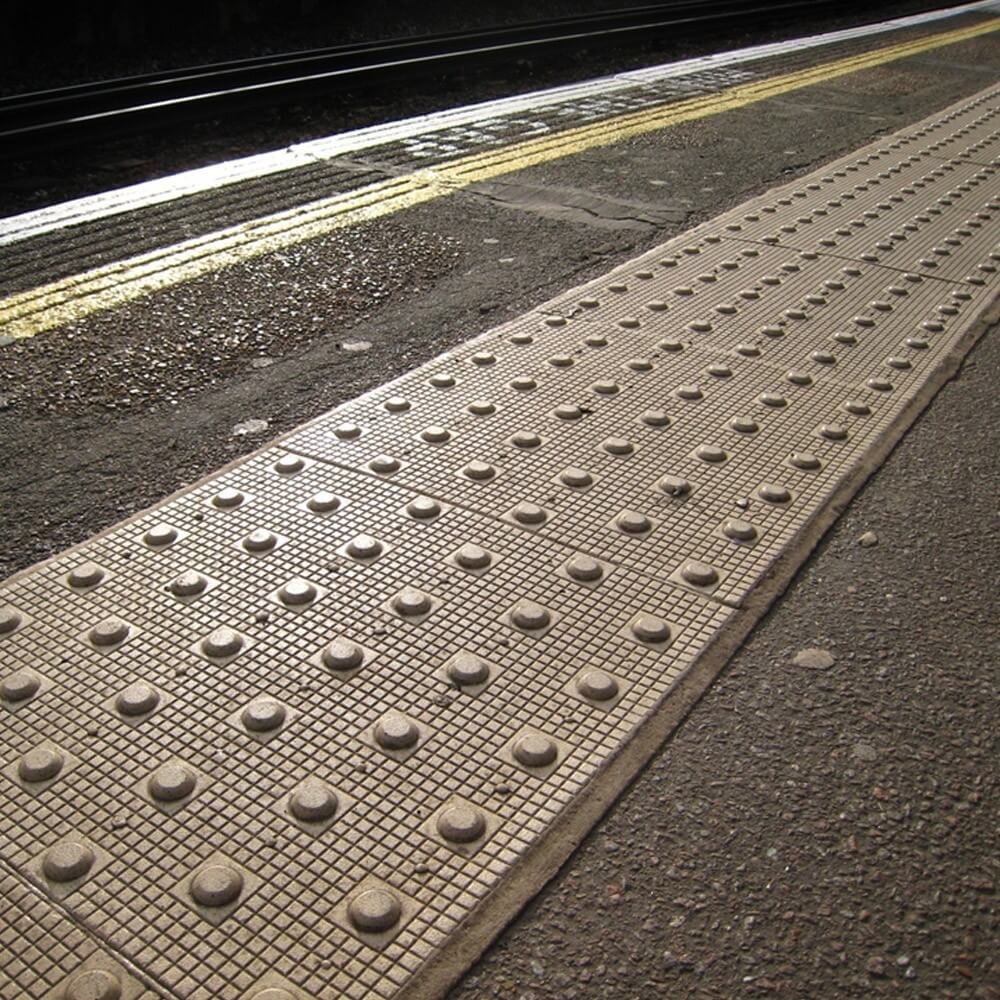
Surface Mounted Tactile Paving GRP Tactile Pavers GripClad
24060 San paolo D'argon Bergamo, Italy. CO. MARMI. Our consultancy studio is specialized in selling slabs and tiles of marble, stone and granite for mosaics, stairca. Send Message. Via Pietro da Cemmo, 2, 20155 Milano Milano, Italy.
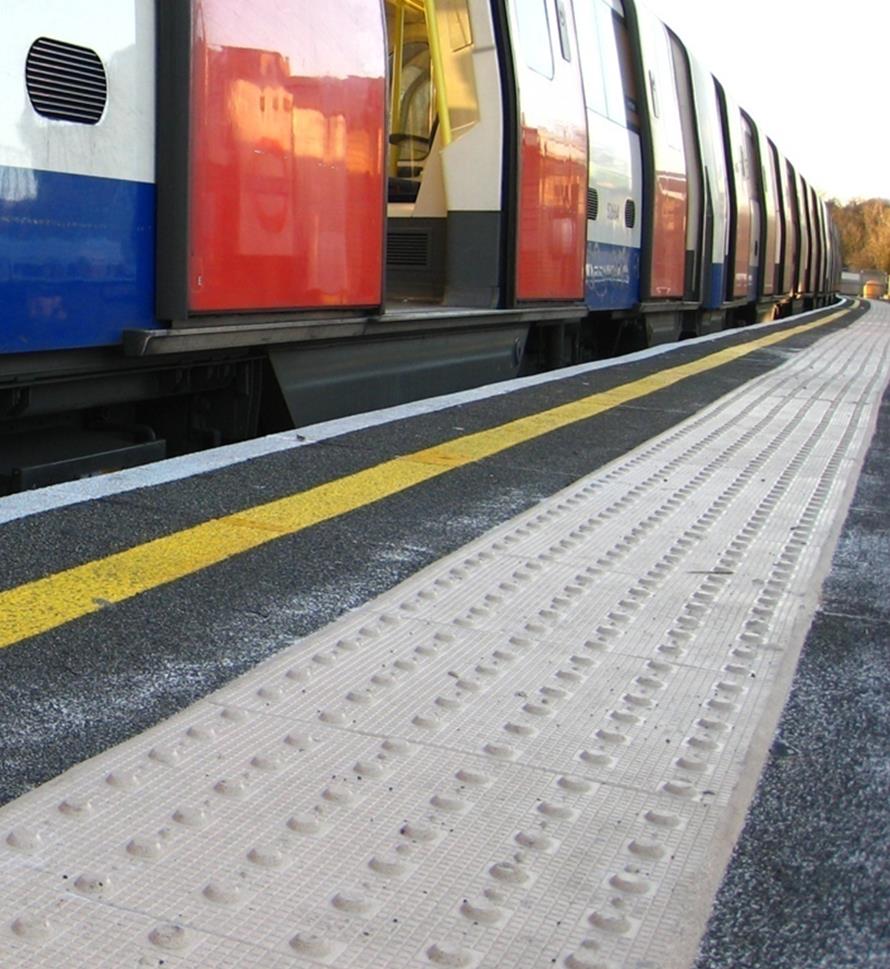
Tactile Paving slabs for the visually impaired Visul
We see tactile paving slabs all over the world today, but how often have we thought about their design? Senior design curator Brendan Cormier walks us throug.
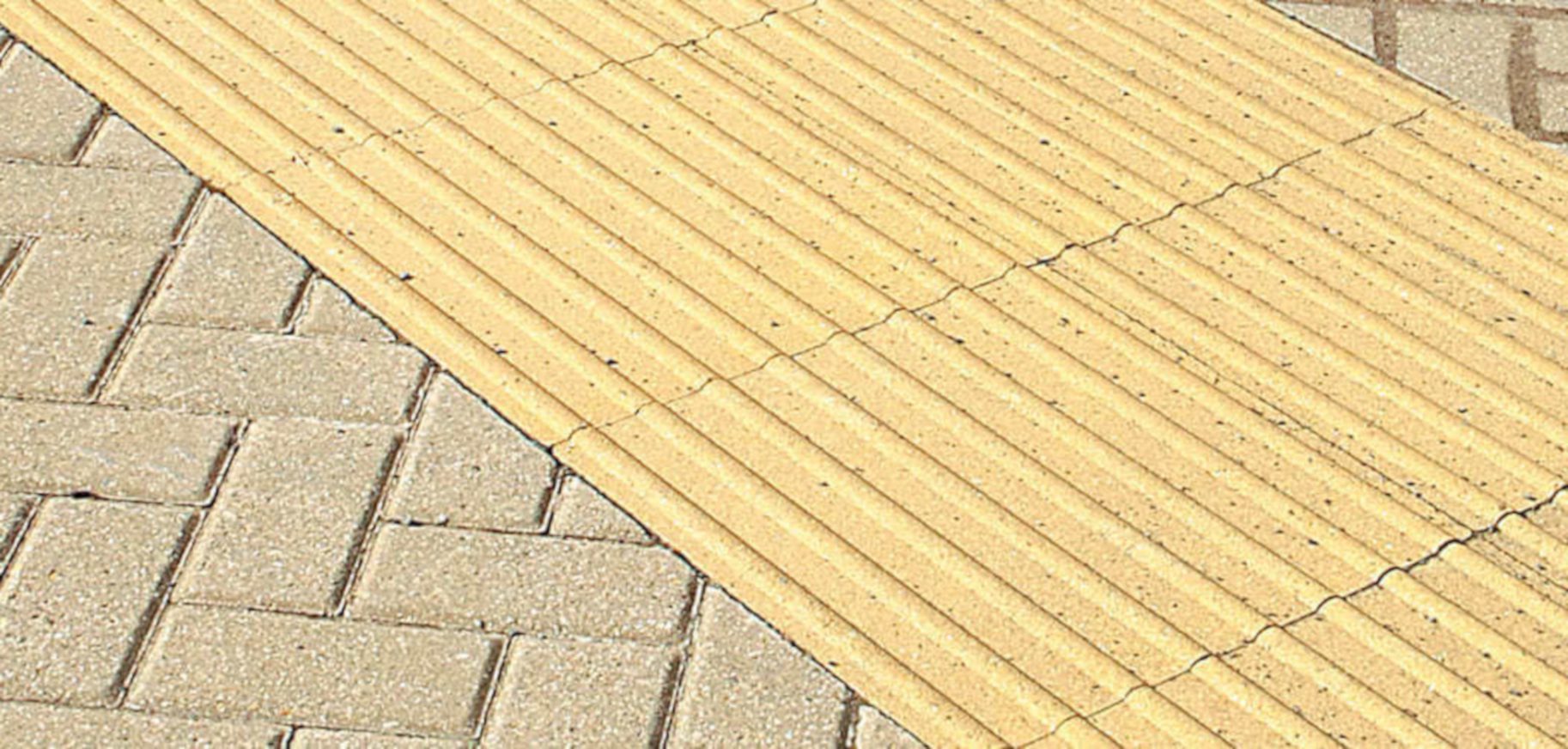
Corduroy Kilsaran
Combining tactile pavements with elements such as Braille signage and tactile maps improves navigation for the visually impaired. Braille signage allows the identification of important spaces.
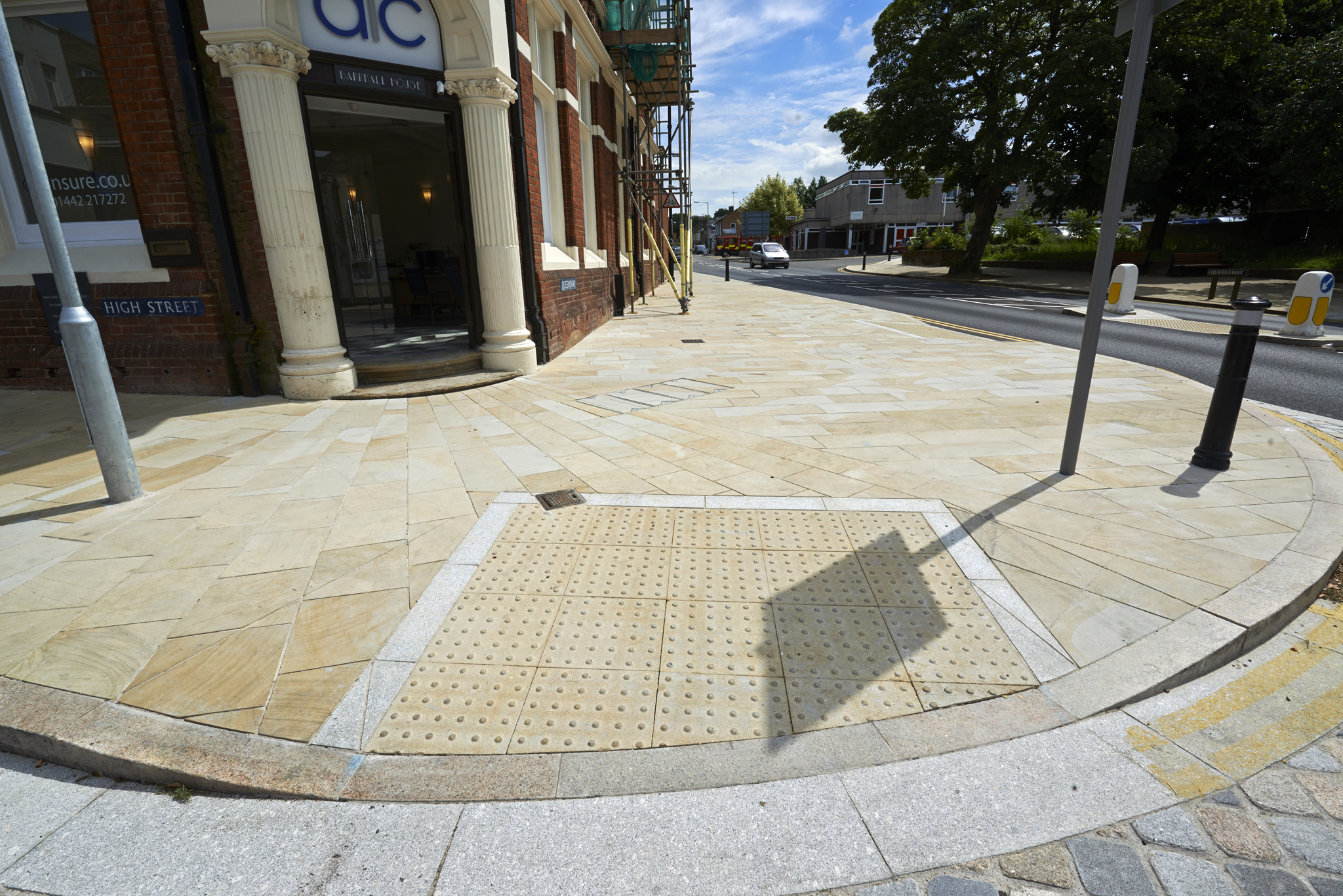
Tactile Blister Paving Slabs Marshalls
We have more than 120 years of experience in landscaping. Tactile flag paving is an essential part of any public area, serving as a warning to visually impaired pedestrians of any road crossing or gradient change, so it's important to install the appropriate paving in these key areas.
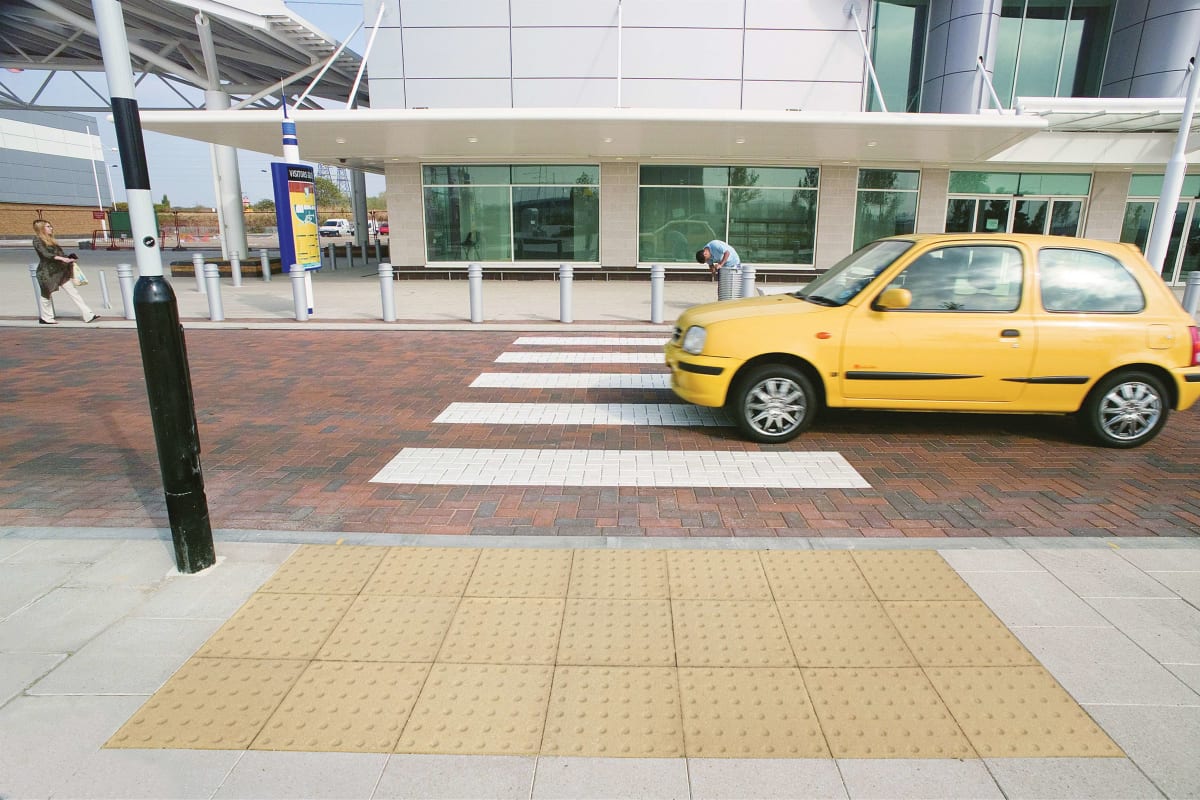
Tactile Blister Paving Slabs Marshalls
Japanese inventor Seiichi Miyake is credited with developing tactile paving, sometimes referred to as tenji blocks, back in the 1960s. He came up with the idea of creating tactile pavement in 1965 as a way to help a vision impaired friend with navigating public spaces, train stations, and stairs. Tactile pavement was first installed in Okayama.
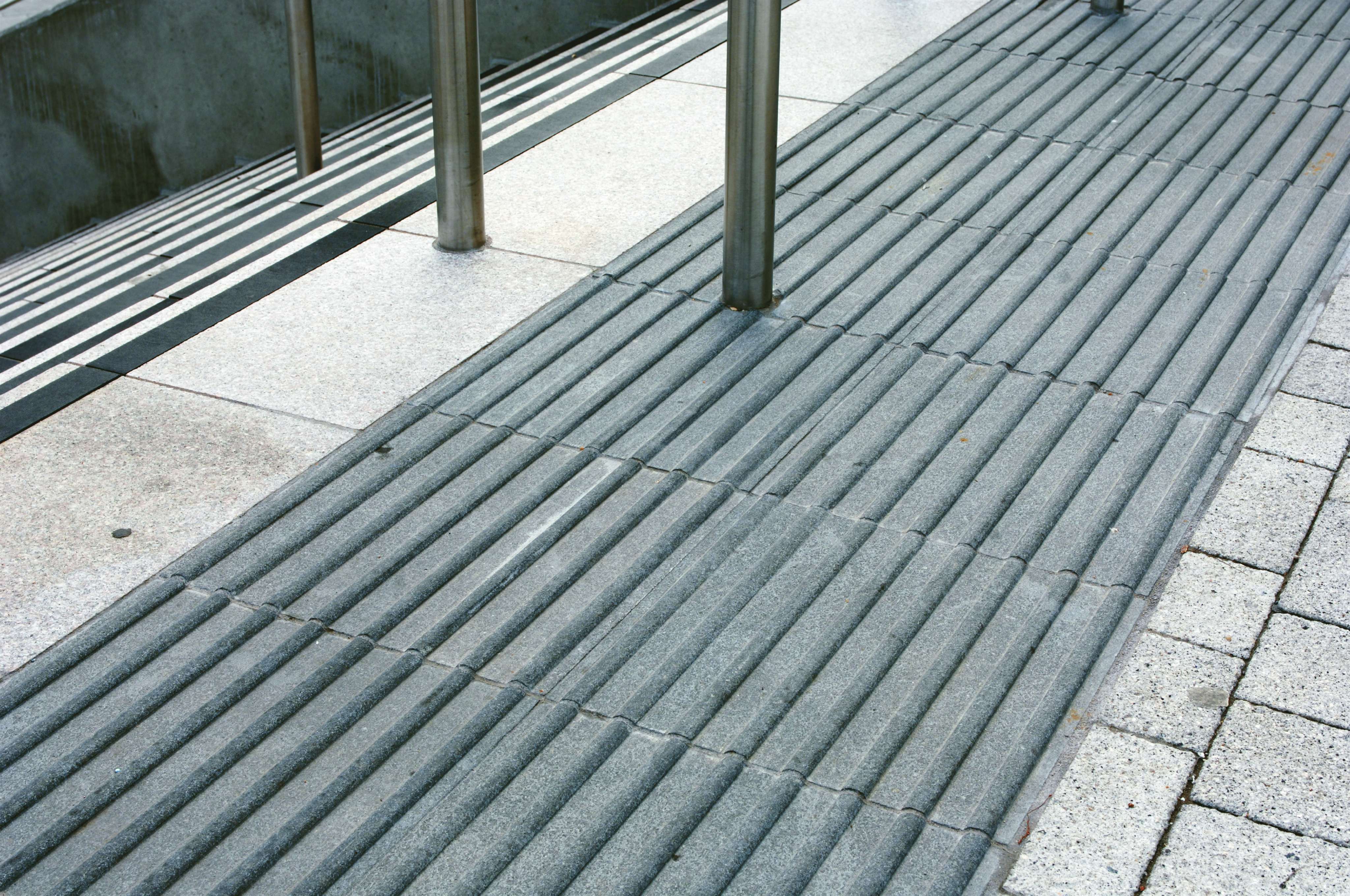
Tactile hazard warning paving Marshalls
SKU: BCH25676. The Marshalls Tactile Blister Paving Slab 400 x 400 x 65mm (L x W x T) is created to aid visually impaired and blind people as they navigate towns and cities on foot. This Marshalls' Blister Tactile Flag Paving makes it easier to identify where drop kerbs and appropriate road-crossing places are located.